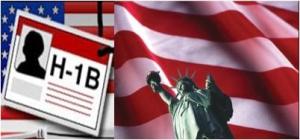Tags
Securing for your loved one a fiancé visa is no small matter. And that may require that you begin looking through an immigration lawyer listing to find one that can help out.
There are countless reasons, but those below are among the biggest.
First, and this should go without saying, lawyers know the law. This isn’t so much as the laws themselves – true, in this day and age, most all of us can access the rules as they’re written – but their application in practice, and also general court procedures.
You don’t want to end up in contempt of court for not knowing your stuff.
Also, you can’t actually represent yourself, no matter how much you study up or how many times you’ve watched Tom Cruise in “A Few Good Men” for confidence. When it comes to securing a fiancé visa, only licensed lawyers – in this case, an immigration lawyer – can represent you and present your case before any one of a few offices.
And there are a few offices. First, there’s the United States Citizenship and Immigration Services (this is where you’ll file the visa petition), the National Visa Center (this is where the name checks will be conducted) and/or at the United States Embassy or Consulate (this is where they’ll interview your fiancé and he/she will get his/her K-1).
Needless to say, then, it may behoove you to have someone guide you through.
What’s more, contracting the services of immigration lawyers can help prevent mistakes – especially costly ones. The costs can be in the form of money (fines, re-application costs, missed work) and time spent fixing your mistakes. That’s potentially a lot of grief.
Maybe most important, though, is that immigration lawyers can help get you resolution – especially when you need it. Maybe you didn’t know, but 40 to 60 percent of fiancé visa petitions filed don’t get approved. This is often due to a number of different issues.
None, though, that can’t be fixed with the help of immigration lawyers.

 The United States immigration office and rulebook is a complex animal. There are many layers, particularities, nuances and finer details to the process worth knowing.
The United States immigration office and rulebook is a complex animal. There are many layers, particularities, nuances and finer details to the process worth knowing.